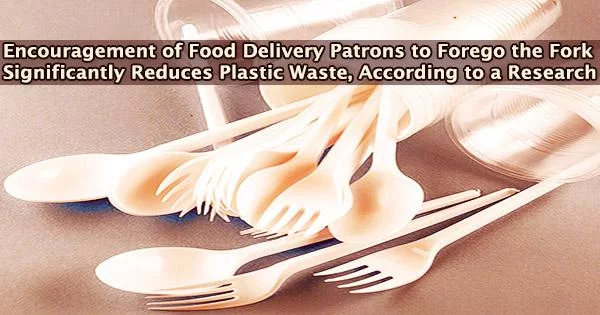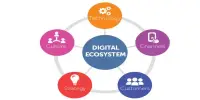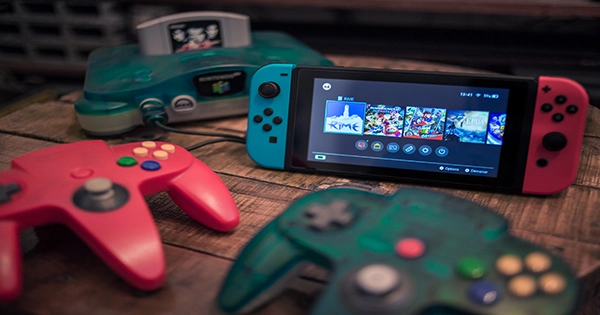Worldwide plastic trash production reached more over 400 million metric tons in 2021, and it is anticipated that in the decades to come, this rise will continue to outstrip efforts to cut down on plastic pollution.
With the rise in popularity of meal delivery services during the COVID-19 pandemic, the increase in plastic trash produced by single-use cutlery has emerged as a significant environmental concern for many nations.
According to a recent study, “green nudges” that urged customers to forego ordering cutlery with their delivery orders were wildly successful. These findings suggest that these strategies could be effective policy tools for reducing plastic waste.
“Few policies target plastic waste production at the consumer level, except charges on plastic bags,” says EPIC-China’s research director Guojun He, an author of the study and an Associate Professor at the Hong Kong University Business School. “Our findings show that simple nudges can make a big difference in changing consumers’ behaviors and could become a tool for policymakers as they confront the immense challenge of plastic waste.”
Since China is the world’s largest producer and consumer of single-use cutlery, it is crucial to reduce waste in the food delivery sector.
More than 540 million Chinese people used meal delivery services regularly as of 2019, and they used more than 50 million sets of single-use silverware per day that were not properly handled or disposed of. To reduce single-use cutlery consumption, policy-makers in China set a target of reducing its usage in food deliveries by 30 percent by 2025.
Few policies target plastic waste production at the consumer level, except charges on plastic bags. Our findings show that simple nudges can make a big difference in changing consumers’ behaviors and could become a tool for policymakers as they confront the immense challenge of plastic waste.
Professor Guojun He
Guojun He and his co-authors Yuhang Pan, Albert Park, Yasuyuki Sawada and Elaine Tan worked with Alibaba’s online food-ordering platform Eleme. Eleme is China’s second largest food-delivery company, similar to Uber Eats and DoorDash, with more than 753 million users in 2022.
The impact of Alibaba’s green nudges to decrease the use of single-use cutlery was assessed by the researchers. These suggestions included making “no cutlery” the default option and rewarding people for not using the silverware with green points.
Once a customer had earned enough green points, they could use them to plant a tree in their honor. The work is published in the journal Science.
The researchers studied each user’s monthly food-ordering history for two years through 2019–2020 in 10 major Chinese cities. These included the three treated cities with green nudges (Beijing, Shanghai, and Tianjin) and the seven control cities without the nudges (Qingdao, Xi’an, Guangzhou, Nanjing, Hangzhou, Wuhan, and Chengdu). Among these cities, the authors randomly sampled about 200,000 active users (i.e., those who placed at least one order between 2019 and 2020).
The authors discovered that by setting the default to “no cutlery” and awarding customers with green points, the percentage of orders that did not include cutlery climbed by 648%.
Green nudges were found to save more than 21.75 billion single-use cutlery sets yearly, 3.26 million metric tons of plastic waste, and 5.44 million trees (from wooden chopsticks) annually if they were implemented throughout all of China.
“Other food delivery platforms, such as UberEats and DoorDash, could try similar nudges to reduce cutlery consumption and plastic waste globally,” says He.
















